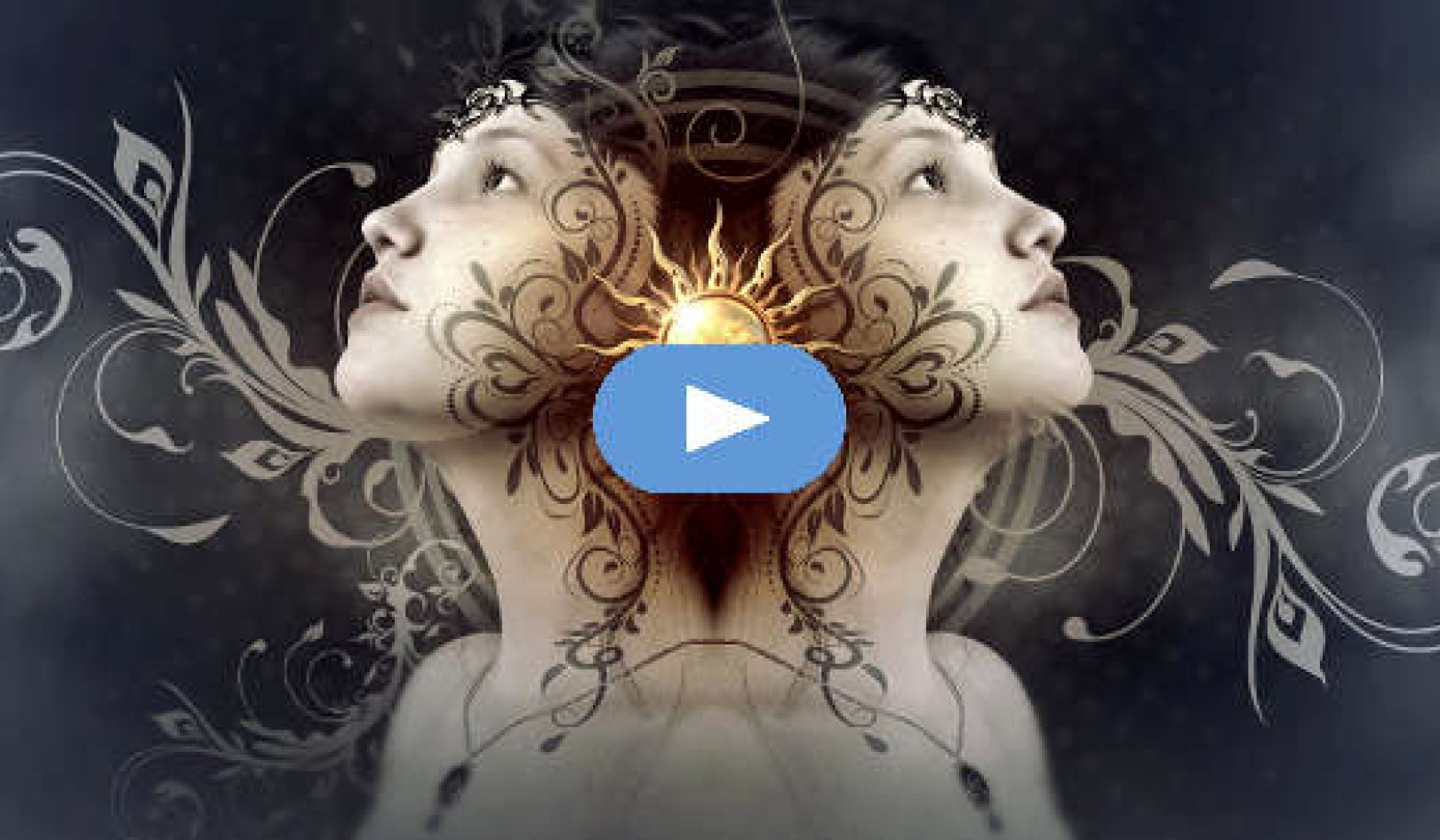It takes 27+ days for the moon to complete its cycle, and that cycle can be an important one in planning your work schedule ' or your schedule for finding work. You can find out where the moon is on any given day by consulting most almanacs ' Old Moore's Almanac even has a complete ephemeris of all the planets, which can be helpful in tracing other cycles as well. Avoid the popular Old Farmer's Almanac, because it gives moon positions in constellations (sixteen of them) rather than zodiacal signs. Many popular calendars give daily moon positions, including the St. Joseph's Aspirin calendar, which is given away free at drugstores around New Year's.
Insert 1The most important time in the lunar cycle is when the moon is over your Ascendant. This will usually be the busiest time of the month for you, and you will tend to look better to others at this time. Therefore it is a good time for job interviews or for closing deals in your favor. Why this should be so is anybody's guess, but perhaps, as Dr. Lieber (a University of Miami psychologist who researched the effects of the moon) suggests, the moon has a pulling influence on everybody, and when it's in your Ascendant position, it pulls people in your direction. Conversely, when the moon is in its opposite place, six signs away, you will generally find things a hit quieter and less likely to turn out in your favor.
The second time of importance in this cycle is when the moon is in the same sign as your sun. At this time you will likely feel a monthly energy peak. When the moon is opposite your sun (180' away, each sign equaling 30') you'll feel an energy low and it's a more likely time to catch cold as well, because your resistance is lower.
If, as in about one out of twelve cases, your Ascendant falls in the seventh sign from your sun, the effects will tend to cancel out, and you'll just have to find out the lunar high points by observation over a period of time. In any case, it is useful to watch the lunar rhythm, because it may trigger regular pockets of activity in certain other signs, depending on your natal planetary placements. When you establish a rhythm, it will give you the advantage of knowing what parts of the month are going to be busier in general so you won't overbook yourself at those times ' rather, you should set them aside for important matters that need to be tended well.
There is a second, better documented lunar cycle, and that is the 29+-day phase cycle from full moon to full moon. You can find the phases of the moon listed not only in almanacs and calendars, but also in many newspapers. If the sky is clear, all you have to do is look up. If you don't see the moon day or night, it's the time of the new moon. If you see it at night, it's going from full to new; if you see it during the day, it's going from new to full, as a general rule of thumb. If it's the time of the full moon, the moon rises at sunset and you can't miss it.
As a categorical statement, it may be said that the full moon produces a higher state of tension and excitedness in human, animals, and plants. This is well documented by extensive research. Thus, at full moon judgment may be colored by these feelings ' knowledge you can use to your advantage.
For instance, the full moon is a better time for partying or making love than for doing important work that requires a steady hand and clear judgment. Enjoyable pastimes where the unexpected is part of the fun use up that extra energy and tension in a positive, creative manner. To do more sober tasks at this time requires repression of those emotionally charged feelings. This attempt may prove difficult and will certainly adversely affect performance. It's a lousy time for a job interview, for example, because the general feeling of pressure, both on you and on your potential employer, will not work in your favor. The same goes for important business deals, because all parties concerned will feel somewhat on edge and that will tend, at best, to make for doubts about the deal and, at worst, to make the whole thing blow up in your face. Be like the hardwood industrialists and cut your timber away from the full moon. The new moon also produces some tension, but not nearly so much, and it's much easier to use it creatively.
This is all good advice, based on firm statistics, but here's a personal example. For many years I have had the enjoyment of performing on summer evenings with a sea chanty group on the piers at New York City's South Street Seaport Museum. It's a very pleasant pastime, singing the crusty old folk songs of working and drinking under the tall spars of the nineteenth-century square-riggers docked there.
But I have come to look with some trepidation upon those nights when the moon has reached its full. It's very dramatic, watching the fat orb of the moon rise over the East River and pulling the water up with it to its highest tide, just barely underneath the docks. But as a performer, you never know what to expect, either from the several hundred people in the audience or from the group itself. These nights are always our best or worst of the summer, depending on how we handle them. If we try to make ordered, well-designed sets of songs, everything inevitably falls apart and the evening is a bust. Guitar strings break, we forget the words, everything gets out of tune and sounds awful. If, on the other hand, we just create our performance as we go along, everybody has a good time and the evening turns into a fun, spontaneous happening.
Our group doesn't make a living singing, so this is not really a crucial matter. But were we a struggling pop music group with an important audition or recording session on a full-moon night, it could be professional disaster and cause us to blow the one 'big break' that everyone in the music biz is always looking for. Forewarned is forearmed.
THE SOLAR OR YEARLY CYCLE
Like the moon, the sun exerts a cyclic pull on us, but the pull is much stronger ' it's what keeps the earth in orbit, determines the seasons, and keeps us all alive. The sun's cycle, 365+ days, serves very much as an overall personal energy and health cycle and often determines what season of the year you will do best in.
One may look at the position of the sun at any time of year as a direction from which a positive, favorable, 'sunny' pull is being exerted upon us all. When that pull is coming from the same direction as your Ascendant, you get the benefit of that positive energy when people see you or deal with you. Thus that time of year will be busier for you and will often serve as the real starting point of your year in the professional sense. This can even be the case when you are in a profession where most of the work is done at a time of year when the sun is not near your Ascendant. I know a writer, for instance, with Leo on the Ascendant who gets most of his important commissions in the middle to late summer, when the sun is passing over his Ascendant, even though the publishing industry is considered dead at that time of year because everybody is on vacation. Somehow this writer manages to get what little work there is at that time, while others go hungry.
As a general rule, however, that kind of positioning is a real disadvantage. Sometimes there just isn't any work at your best time of year, so your best time is regularly wasted. It is better to choose a profession or industry where the major jobs and commissions are handed out at the time of year when the sun is passing over your Ascendant. This will put you automatically at the head of the line, all other factors being equal. When there is a break to be had, you'll be the first to get it.
When the sun is at the bottom of its Ascendant cycle, that is, the seventh sign from the Ascendant, you are likely to experience a quiet period in which less happens in general and fewer opportunities come your way. If you can take a vacation at this time, do so. You won't be missing much.
The other solar cycle worth considering centers around your birthday, a time when you are likely to have more energy than any other. This is a trend that will follow you to your grave, because it has been several times demonstrated statistically that significantly fewer people die in the months surrounding their birthdays than in the months further away from them. There have been various theories proposed to explain this, but nothing definitive. Whatever the reason, it would appear you have more real life force working for you around your birth date, and six months away from it you have less energy and are more susceptible to health problems. Therefore, perhaps the other most ideal time for a vacation would be six months after your birthday ' an 'unbirthday' celebration and recuperation. At the least, you should expect less to be happening at this time and count on fewer potential sources of extra income ' and you should take extra care of your health. Get lots of vitamin C (I go on a grapefruit binge that time of year) and go easy on yourself so the local viruses won't pick you for their next victim.
Naturally, the relative positions of your Ascendant and your natal sun will determine a sort of double rhythm for the year, such that you will have a business activity peak followed by an energy peak or vice versa. They will occur together only if they both fall in the same sign. If they occur six months apart, you will be one of those unusual individuals who looks best when feeling worst, and vice versa. By keeping an eye on this combined cycle, you can try to plan things so it gives you the extra added push when you want it and you don't find yourself struggling through important matters at the very bottom of a cycle.
Another personal example: I have a Gemini Ascendant, so every year just as summer is about to begin (as the sun goes into Gemini), I get into gear. Unfortunately, the rest of the world is getting ready to take off for summer vacations, but I manage to pick up whatever out-of-the-ordinary business is to be had at this time. This advantage is reinforced by the fact that my natal sun is in Leo, so I'm at an energy peak when everyone else is dropping from the heat in the dog days of August or off on a cool European vacation. But when the rest of the business world is busiest, during the fall, winter, and early spring, I'm neither looking nor feeling my best and it puts me at a real disadvantage. In effect, it tends to herd me into less-frequented areas in the pursuit of a living, so I have found myself writing about unusual topics and performing obscure music for most of my life. If I wanted to be in the mainstream, I'd be better off in the southern hemisphere where the seasons are reversed.
This is not to suggest that everyone with natal sun or Ascendant in summer signs should pack up and move to Australia or is doomed to take second position in the everyday business world. It merely means that these people will have to struggle harder than their neighbors, all other things being equal, to reach the same spot or be willing to go into areas that are more off the beaten track. Being naturally lazy, I chose the latter course, but whatever your choice, it helps to be aware of all the factors affecting it.
One final comment: Astrologers say that the sign of your Ascendant determines the nature of your physical appearance. Well, there's no proof of that as yet, but perhaps it's an explanation for the similarity of appearance of so many people within a given industry. I know I can spot a music biz type walking down the street by appearance alone ' and the same goes for ad men, garment industry salesmen, and so on. Perhaps their Ascendants are just more naturally in tune with the yearly rhythm of their industries. It may be idle speculation, but it is thought provoking.
 This article was excerpted from Dynamic Astrology: Using Planetary Cycles to Make Personal and Career Choices, ' 1997, by John Townley. Reprinted with permission of Destiny Books an imprint of Inner Traditions, Rochester, Vermont, USA. www.innertraditions.com
This article was excerpted from Dynamic Astrology: Using Planetary Cycles to Make Personal and Career Choices, ' 1997, by John Townley. Reprinted with permission of Destiny Books an imprint of Inner Traditions, Rochester, Vermont, USA. www.innertraditions.com
Info or Order this book.
About The Author
John Townley is a lifelong astrologer, author, composer, and historian. His professional experience has spanned the fields of business, science, journalism, maritime history, and the creative arts. He may be reached at





























